
What Does “Backordered” Mean? Definition, Examples & Tips
What does backordered mean and how does this affect your retail business? Check out this article to find out!
Boost customer experience and reduce support tickets
Realtime order and shipment tracking
Proactive order and shipping notifications
Predictive pre-purchase estimated delivery dates
Self-Serivce branded order tracking
Effortless experience delivered
Make returns profitable and delight customers
Flexibility to define any return destinations & conditions
Simplify returns for your customers and team
Incentivize exchanges over returns
Returns management made easy for your team
Understand why your customers are returning
Unify the online and the in-store experience
Hassle-free pickup experience for customers
In-Store Dashboard to keep operations streamlined
In-Store and Online orders unified
Drive foot-traffic to your stores
Boost customer experience and reduce support tickets
Realtime order and shipment tracking
Proactive order and shipping notifications
Predictive pre-purchase estimated delivery dates
Self-Serivce branded order tracking
Effortless experience delivered
Make returns profitable and delight customers
Flexibility to define any return destinations & conditions
Simplify returns for your customers and team
Incentivize exchanges over returns
Returns management made easy for your team
Understand why your customers are returning
Unify the online and the in-store experience
Hassle-free pickup experience for customers
In-Store Dashboard to keep operations streamlined
In-Store and Online orders unified
Drive foot-traffic to your stores
Find the answer to all your questions
Explore the most comon questions about WeSupply
Calculate the ROI that WeSupply can bring you
Request a no strings attached review of your current shopping experience and missed conversion opportunities
Take a step by step trip through our functionality to see how we can improve your ecommerce processes.
Read actionable articles on how to optimize your post-purchase experience and decrease support tickets
Get inspired by stories of how our customers implemented an effortless post-purchase experience
A Deep Dive into Top Companies' Order Tracking & Returns Strategy
Wondering if WeSupply is a good fit for you? Read through our use cases to see how we can help you increase conversion & improve CX!
[FREE TEMPLATE – Dropshipping Reverse Logistics Optimizer]
Are you looking to make dropshipping reverse logistics efficient? Bring down return costs by 27%! Check out our free template to simplify return package routing and unify return management operations.
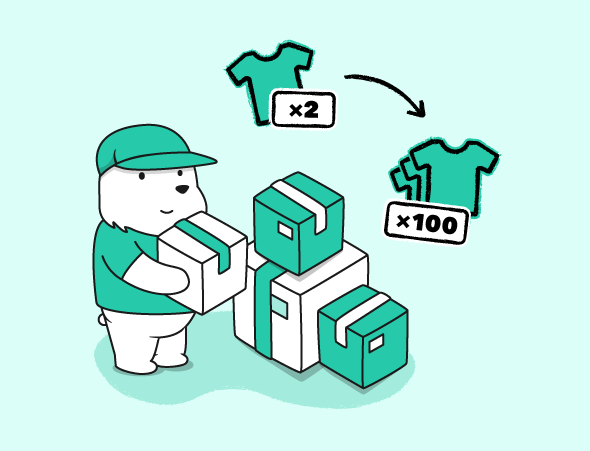
Suppliers often require a MOQ (minimum order quantity) before they do business with you.
This can be a major obstacle, especially for small online retailers that are just starting out.
Retailers have to contend with MOQs from suppliers, which can often prevent them from getting started at all since it can be quite expensive to pay for all items upfront.
Besides, this also puts merchants at risk if they end up stuck with excess inventory that takes physical space and won’t bring in any profits.
What matters the most is to understand what MOQ meaning or MOQ definition is for your eCommerce business, and what you should look for before sealing the deal with a supplier.
This will enable you to boost inventory turnover, turn returns into exchanges, and ultimately cut down costs by managing your inventory and warehouses more efficiently, whether or not you’re subject to a supplier’s MOQ.
What does MOQ Mean?
MOQ stands for minimum order quantity and represents the minimum amount of products a customer (business or consumer) must purchase for a supplier or manufacturer to fulfill their order. MOQ can be measured either per unit or per price value, whichever best helps achieve the target gross profit margin.
To put it simply, MOQ is the minimum number of units a customer must purchase in order for a business (manufacturer or wholesaler) to fill their order. For example, a supplier selling a product priced at $100 might require a minimum order quantity of either 100 units or $10,000.
The minimum order quantity is essential for suppliers because it sets the limit on how few products they can sell and still make a profit. If manufacturers set a low minimum order quantity, they might not be able to cover production costs and even shipping costs.
For instance, take into account the fact that some manufacturers might only make a small profit on each product, but they make up for it by selling large quantities.
For them, the MOQ is often based on the actual size of the factory and the minimum quantity that can be produced in a single production run. For suppliers, setting MOQs often means an improved cash flow, lower inventory costs, and ultimately better profit margins.
Considering all these factors, manufacturers and suppliers need to decide on the MOQ that will allow them to break even and make a profit in the long run. In the end, it’s all about finding that sweet spot where they can maximize their profits while still meeting the needs of their customers.
When manufacturers and suppliers calculate MOQ for a product, they normally look at the big picture.
That means taking into account both the gross profit margins, minimum spend, and the overall production costs, including raw materials, transportation, marketing, and administrative expenses.
When it comes to setting a MOQ order quantity, manufacturers and suppliers have to strike a delicate balance. If they set a low MOQ, they might put a strain on their business and lose money or precious resources.
On the other hand, setting a high MOQ can bring in more profit but this also enables retailers to get the best deals when buying in bulk.
To sum it up, you can calculate the MOQ in 5 main steps:
Forecast customer demand
Establish the break-even point
Calculate all hard and soft costs
Determine the target profit margin
Settle on your MOQ
If you find it challenging to pay upfront to meet a high MOQ, one option is to seal the deal with manufacturers and wholesalers who are willing to work with smaller orders.
This can be tricky, as many manufacturers have their own requirements they need to meet to keep their business afloat and be profitable.
On the other hand, if your suppliers allow it, you can also pay in installments instead of making an upfront investment that covers all costs.
Another way is to pre-sell products and reach your minimum order quantity. This option might come with some risks, as there is no guarantee that all customers always follow through with their purchases.
First of all, for retailers, the main advantage of going with a supplier that requires MOQ is that they can get the best deal available on buying in bulk. It’s as simple as that— the higher quantity you order, the better the price per unit.
Buying in bulk will also be more profitable for the end customer, enabling you to create better offers for them and sell products in bundles which ultimately lead to higher AOV (average order value).
Purchasing huge quantities works best for larger companies with a high demand that need to stock large quantities of merchandise to avoid backorders and out-of-stock situations.
Although this also leads to increased warehouse storage costs, in the end, it might be more profitable to buy and sell in bulk than to cover additional transportation, packing (and unpacking) expenses.
MOQs and bundles are not for wholesale suppliers only! You can also use minimum order quantity examples and bundling to your advantage.
For instance, if you’re offering free shipping instead of a shipping fee, on all orders, you can reduce your last-mile delivery costs in the long run. You can also negotiate bulk discounts for all transportation stages with your shipping company reduce shipping cost or offer your customers cost-effective shipping rates on smaller orders.
Moreover, providing customers with bundles and bulk deals will directly impact the average order value. Take, for instance, the following example from Yogasleep on Amazon:
However, you need to make sure these offers won’t negatively impact profit margins too much.
If the MOQ or bundling models might not be the best fit for your business, another way you can ensure sales keep on rolling is a subscription model for your physical products. This way you’ll keep customers coming back for more each time the subscription is renewed!
Here’s how London Drugs automates deliveries to build customer loyalty and boost sales:
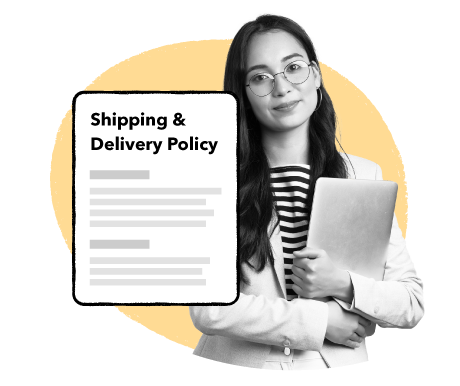
In retail, sometimes you’ll have to deal with backorders and slow supplier lead time but also with MOQs and slow inventory turnover.
What matters the most is to have the right tools and processes in place to minimize any negative effects and build efficient systems. WeSupply enables you to achieve this without making any compromises.
Check out the three ways our platform enables you to overcome MOQ challenges.
(The last one is our favorite.)
When you have to pay a large sum upfront to cover the MOQ, it can be challenging to also have customers cancel their orders on you due to lack of responsiveness and post-purchase anxiety.
The best you can do is to be proactive and offer them order tracking options that mitigate most of that anxiety and help you build customer loyalty.
However, sometimes customers might just ask for a return, and that’s okay. What you can do to minimize transportation costs and overcome some of the supply chain challenges is to set up intelligent disposition locations using WeSupply. If you’re selling perishable goods (e.g., food and beverages), you might even consider letting the customer keep the item entirely.
Keep in mind that a return doesn’t always end in a refund. You can offer customers the opportunity to exchange an item or accept store credit instead of reimbursing the amount to the original payment method.
WeSupply enables you to provide gift cards and store credit coupons to customers who exchange items instead of returning them to reduce overall costs and boost future sales.
This helps you keep the inventory turnover rate going up while cutting down the number of refunds which can add more pressure on your already tight budget.
For instance, if you offer customers an extra $10 store credit coupon, you can secure the sale and even increase the average order value. This way, you’re not sending away the customer, encouraging them to return to your store.
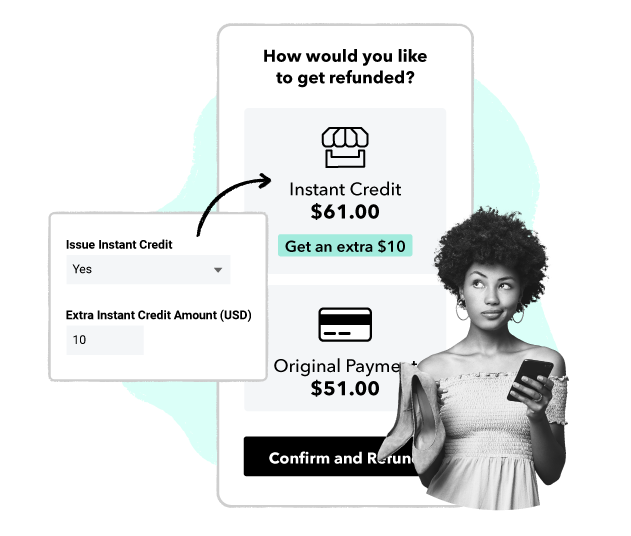
Last but surely not least, to offset the effects of MOQs, including high inventory costs and low sales volume, WeSupply offers personalized post-purchase email and SMS notifications. Not only do these keep customers updated on the status of their orders, but also allow retailers to upsell and cross-sell based on individual consumer behavior.
You can add personalized offers and hot deals directly to your order tracking pages and delivery notifications using WeSupply alongside our out-of-box integrations with tools like Attentive, Justuno, and Omnisend.
This allows merchants like yourself to keep customers informed and engaged, which can lead to repeat purchases and ultimately an increased number of sales.
Most manufacturers and suppliers are setting MOQs to cover the cost of production and transportation, from raw materials to storage and shipping, which can often take a toll on their businesses.
In other words, these businesses pay the price of producing and distributing an item before selling them, and if they don’t, they’re stuck with the bill.
Additionally, suppliers set higher MOQs to increase the average order value and take care of the production cost without increasing the price per unit or lowering the quality control. This allows merchants to spice up a bit their prices and get their fair share of return on investment.
All in all, although MOQs are not bad for your eCommerce business, you still keep an eye on your inventory, supplier relationships, and customer demand to be as profitable as possible.
If you’re looking to source products from Alibaba suppliers or other Chinese suppliers, you’ll likely come across the concept of MOQ, or minimum order quantity. This is an amount that the supplier requires you to purchase in order to do business with them.
The reason for this is often due to the high cost of shipping from China, which makes smaller orders less economical. As a result, Alibaba minimum order quantity is imposed on a large part of its product offering. This can be frustrating for buyers, but it’s important to remember that you can often negotiate with the supplier on the MOQ. In some cases, they may be willing to waive it entirely or lower the amount if you’re willing to commit to a larger order. So don’t be afraid to ask!
Learn How To Create Successful Post Purchase Email Campaigns
Build an effective post-purchase email flow that helps you increase customer satisfaction and drive revenue growth!

What does backordered mean and how does this affect your retail business? Check out this article to find out!
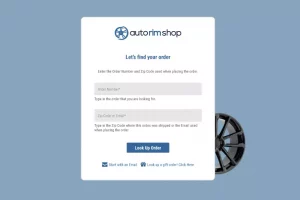
Auto Rim Shop automates the Delivery and Return Experience for heavy items fulfilled and returned directly to dropshippers.

Keep reading this article to find out how delivery companies track packages & how it affects your eCommerce business.

What is a packing slip and why should you use it for your business? Read this article to find out and get your free packing slip template.
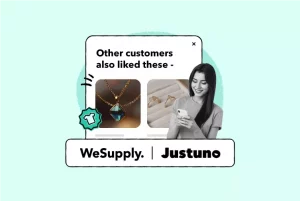
How to build an excellent post-purchase experience using personalization tools? Check out this article to find out!

What does in transit mean and how long does it take? Read this article to find out & see how to answer your customers’ burning questions.

Are you curious how test emails work in Klaviyo? In this step-by-step guide, we will show you how to send a test email and view the results.
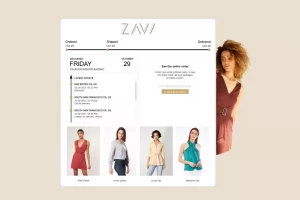
Online Shop ZAVI manages to increase workload capacity by 20% with 360-visibility into all shipping and returns operations.
It can be faster to send a split shipment, meaning some packages can reach your customers sooner. But what to consider beforehand?